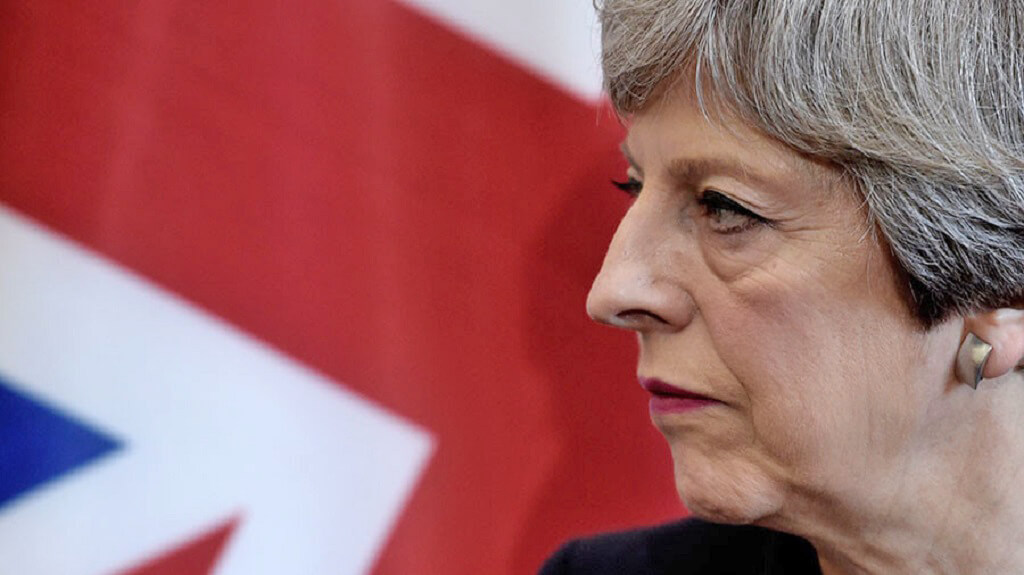Marco Levytsky, NP-UN Western Bureau.
The United Kingdom has reacted to Russia’s use of chemical warfare on its territory to poison a former Russian spy by expelling 23 Russian diplomats and halting high-level contacts.
Sergei and Yulia Skripal were found unconscious on a bench outside a shopping mall in Salisbury on March 4. British authorities say they were exposed to a deadly chemical substance developed by the Soviet military that was part of a group of nerve agents known as Novichoks.
Prime Minister Theresa May described this action as the biggest expulsion of Russian diplomats from Britain in over 30 years, adding it will degrade Russian intelligence capabilities in Britain for years to come. In 1985, London and Moscow engaged in mutual expulsions when 31 citizens from each country were sent packing following the defection to Britain of KGB agent Oleg Gordievsky.
May also said the U.K. will move to freeze Russian state assets where necessary in response to what she said was an “unlawful use of force” by Russia against the U.K. but declined to announce specific economic sanctions against prominent Russian oligarchs and Kremlin officials, who own vast property wealth in London and educate their children in elite British schools, explaining that existing British laws against money laundering were adequate.
Critics say many stronger and more effective actions could be taken. Here are several options:
- Strengthen the sanctions and anti-money laundering legislation;
- Freeze assets of Russian oligarchs unable to explain sources of London property wealth;
- Seek further EU-wide sanctions on Russia;
- Step up NATO presence on the Russian border;
- Designate Russia as a state sponsor of terrorism;
- Cut Russian banks off from the SWIFT international banking system;
- Leak or publish classified material on the scale of alleged money laundering by Putin and his allies.
To be effective, however, any increased actions by Britain cannot be implemented by Britain alone, but should be coordinated with both the EU and NATO allies.
While the U.K. allies have rallied behind the country verbally, they have yet to respond in kind.
And, according to a recent report by RFE/RL, although the EU will most likely include language expressing solidarity with Britain, in the closing statement of its March 22 meeting, it will not introduce new sanctions against Russia.
And even though U.S. President Donald Trump on March 15 for the first time admitted that Russia was behind the poisoning and that same day the Treasury Department issued new sanctions against Russia for its meddling in the 2016 U.S. Presidential elections, critics still pointed out these actions don’t go far enough.
Max Bergmann, a senior fellow at the Center for American Progress, a liberal group, called the sanctions “a very short first step” because they were narrow in scope and did not target business interests closer to Putin. He also said that the joint statement about the attack on a former Russian double agent living in Britain left something to be desired.
“The thing that would carry impact is if they heard he himself saying or even tweeting something negative about Russia,” Bergmann told The Hill, referring to Trump. “Because ultimately, if this does escalate, the United States is really going to have to do something more forceful, and that is going to require the president.”
The underlying problem is that the West is reluctant to impose more stringent economic sanctions upon Russia because in many cases, they affect business interests in their own countries.
There is a very interesting episode from Canada’s own history which may be relevant here. In 1935, Walter A. Riddell a Canadian delegate to the League of Nations proposed an oil, coal, iron and steel embargo against Benito Mussolini’s Italy after its aggressive incursions in Ethiopia. One month later, the Canadian government under MacKenzie King repudiated Riddell’s proposal. This became known as the “Riddell incident”. A year later, Adolph Hitler remilitarized the Rhineland and the West did nothing. In 1937, Japan invaded China and the West did nothing. In 1938, Hitler annexed Austria, then the Czech Sudetenland, this time with the blessing of the U.K. and France. In March 1939, he took the rest of Czechoslovakia and on September 1 invaded Poland. The rest is history.
Would Riddell’s proposed sanctions in 1935 have prevented further aggression? Who knows? But, most certainly the failure to implement them gave a green light to the fascist dictators of the 1930’s to push as many buttons as they thought they could get away with.
And today it is Putin who is pushing the free world’s buttons. Because the nuclear threat posed by Moscow seriously limits military options, economic measures become extremely important and must be applied as forcibly as possible. They must also be considered from a global perspective, instead of pandering to narrow business interests. Because, who knows? One day Putin may push one button too many.
Share on Social Media


































